How A Hip Food Hall Is A Major Part Of The Cultural Renaissance In Marseille
The bright Marseille sun is smiling down on Antoine Siffrein-Blanc as he takes rapid drags from a cigarette and checks his iPhone. There's too much to do at his four-month-old market and food hall, Les Halles de la Major, which includes but is not limited to the French actor Jean Dujardin walking the red carpet — past the king oyster mushrooms and artisanal ice cream — for the premiere of his latest film that very evening. Food has always been an event in France — sit down for even the most basic meal in Provence and it will morph, via very good wine, vegetables, slow-roasted lamb and insanely fresh seafood, into a three-hour affair. But to host a world movie premiere with one of the country's most famous actors at what is essentially a fancy grocery store is very, very un-French.
"This is like a new breath of oxygen," says Siffrein-Blanc, pointing to the nearby Villa Mediterranée and MuCEM (short for Museum of the Civilisations of Europe and the Mediterranean), anchors in the city's facelift that was capped by being named a 2013 European Capital of Culture. Marseille? The Provencal port town with the sketchy past? The city you avoided during your holiday stops to nearby Aix-en-Provence or Avignon? Mais non! Marseille is a happening city, supported by not just the nearly $800 million of public and private money that has been spent, but a community of young entrepreneurs tasked with re-building the city using ancient bones that date back to early Greek settlements in 600 B.C. For Siffrein-Blanc, food is the answer.
The idea started in New York City, where the Frenchman visited his in-laws regularly. His favorite place was Chelsea Market, a sprawling 1890s factory converted into office buildings and a string of food-related retail shops and restaurants. "I love, I love, I love that place. It was fabulous for me." Soon Siffrein-Blanc was back in Marseille and quickly making plans. Teaming with a business partner, as well as using a considerable amount of his own personal funds, he secured the markets' current location at the Les Voûtes de la Major — the vaults of the Major Cathedral — and started recruiting his lineup of vendors.
Make no mistake, walking into the spotless two-level space is a journey through the food and drink of France, specifically Provence with a quick stop in Lyon. So, there are no pad Thai stands or upstart barbecue pits. "These are my definition of the foods of France," he says, confidently, as a server pours a glass of pale wine from nearby Cassis. Before taking a seat at the upstairs dining room, where customers carry their plates and containers and are served wine and other drinks by the friendly staff, Siffrein-Blanc gave us a tour:
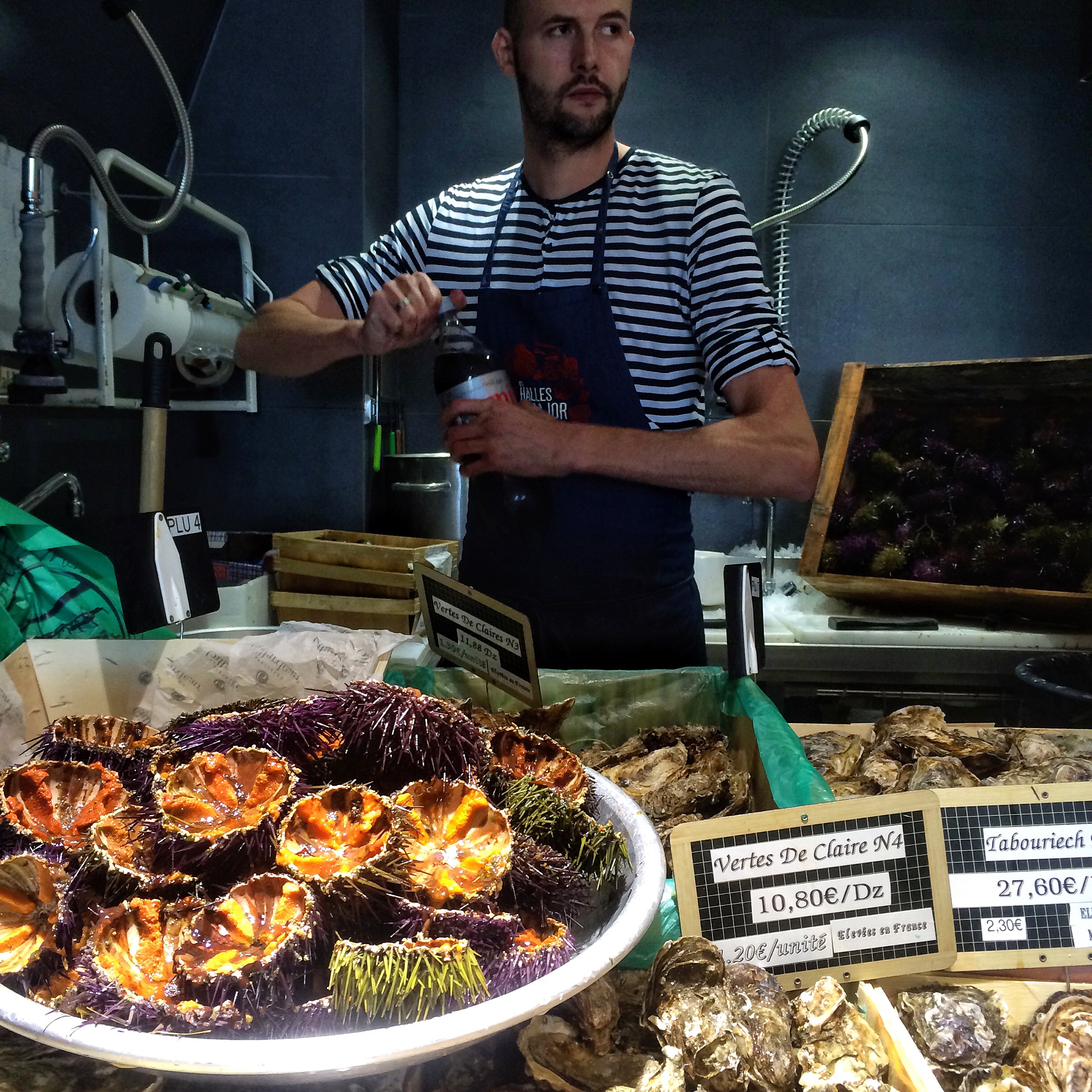 Seafood is the beating heart of Marseille's culinary tradition and the market sells a large quantity of briny oysters and sea urchin yanked from the Mediterranean.[/caption]
Seafood is the beating heart of Marseille's culinary tradition and the market sells a large quantity of briny oysters and sea urchin yanked from the Mediterranean.[/caption]
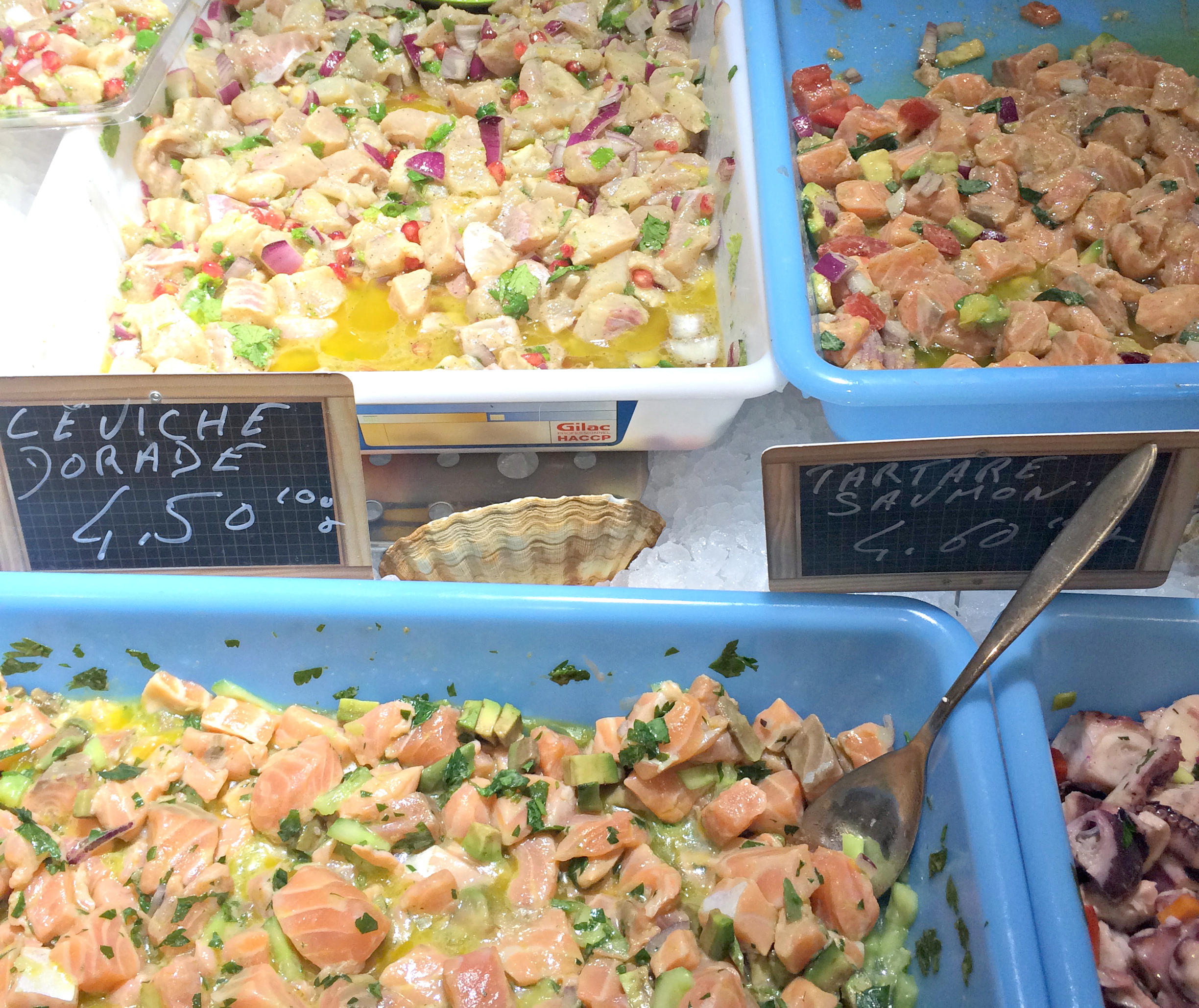 The market offers an exquisite selection of ceviches and tartares using the freshest fish like dorade, tuna and salmon. Octopus as thick as your wrist and marinated in olive oil was particularly good.[/caption]
The market offers an exquisite selection of ceviches and tartares using the freshest fish like dorade, tuna and salmon. Octopus as thick as your wrist and marinated in olive oil was particularly good.[/caption]
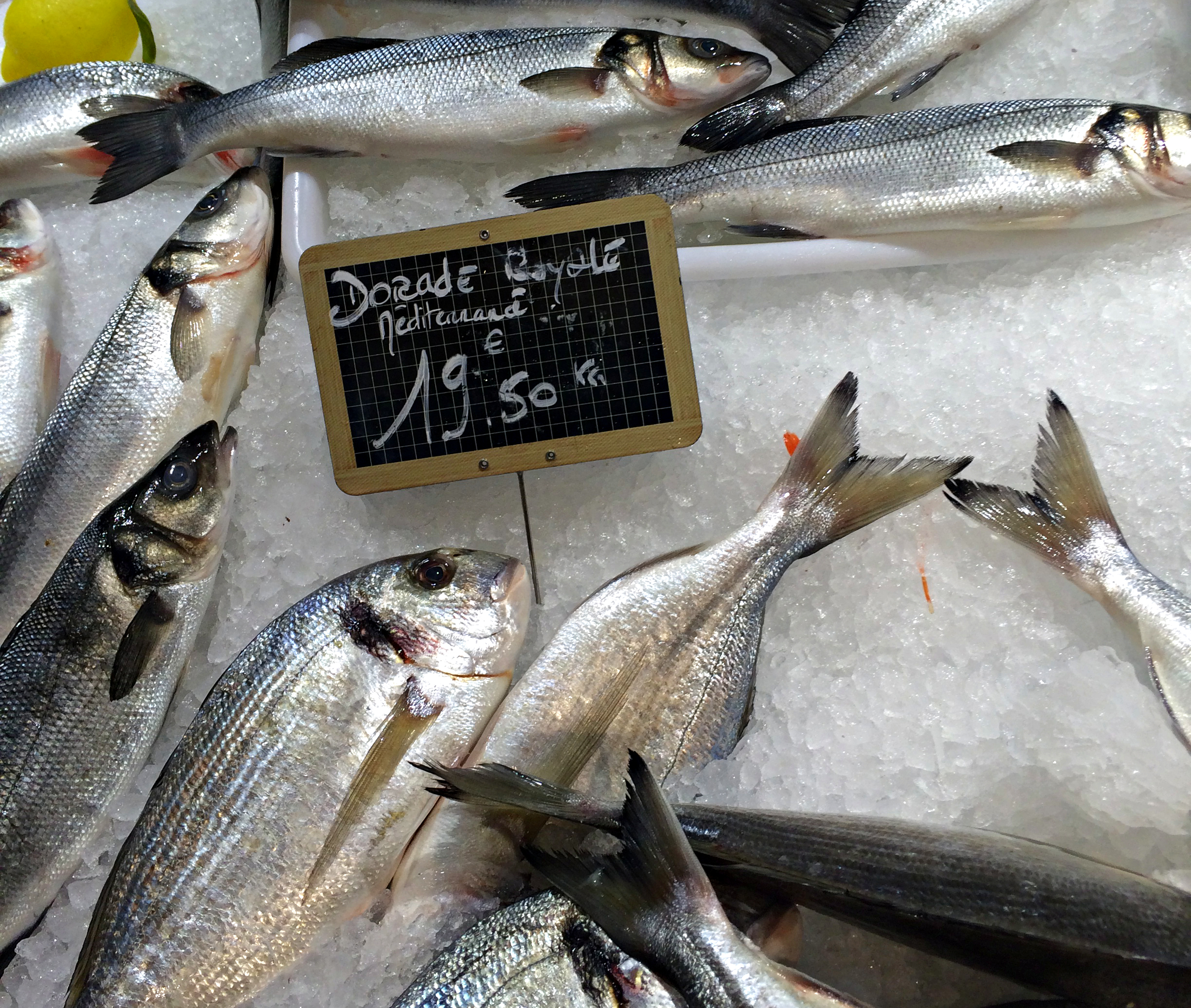 Dorade, the daily catch.[/caption]
Dorade, the daily catch.[/caption]
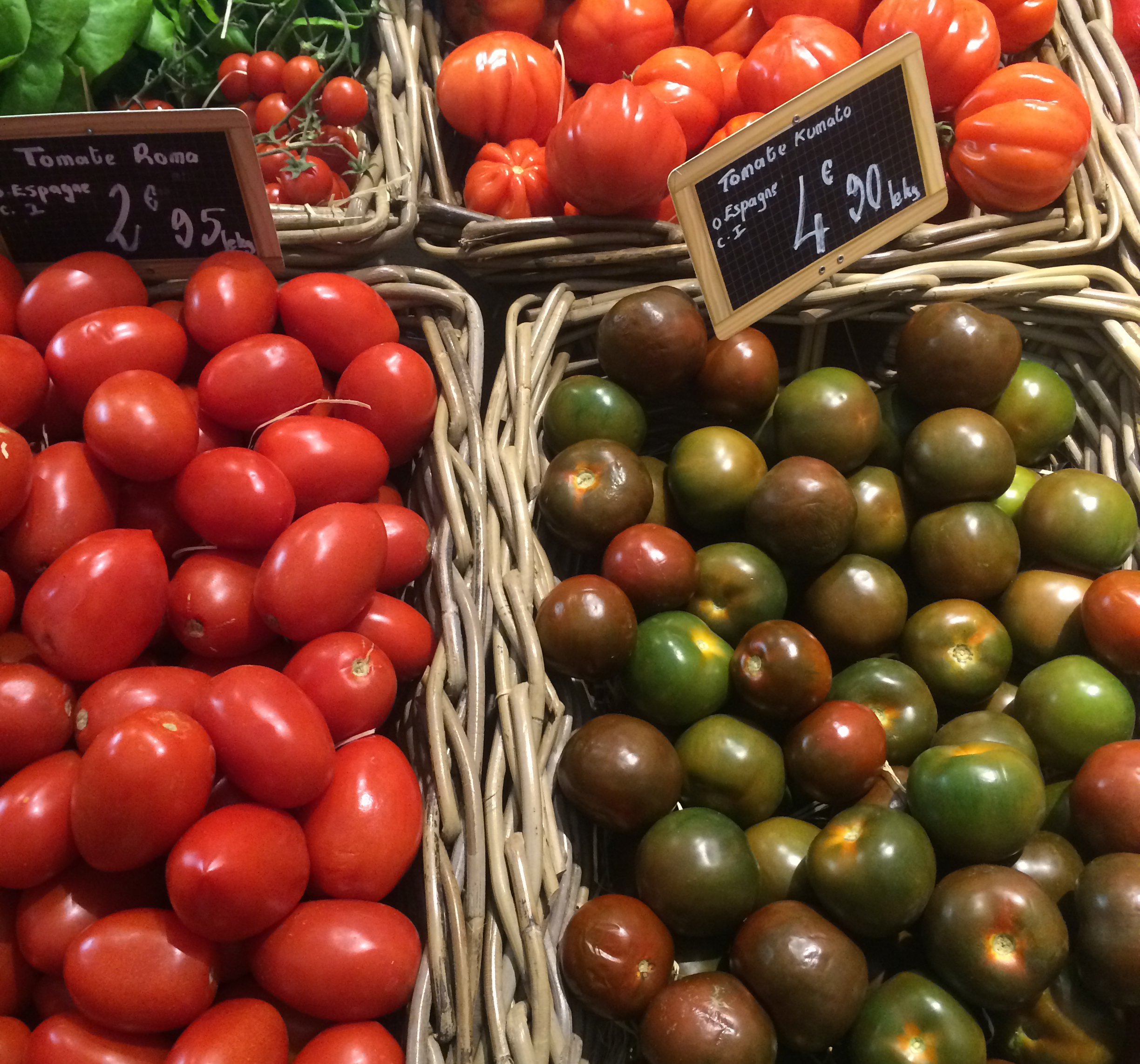 There are nearly 300 days of sun in Marseille, which attributes to this basket of FOUR different tomatoes sold in mid-November. [/caption]
There are nearly 300 days of sun in Marseille, which attributes to this basket of FOUR different tomatoes sold in mid-November. [/caption]
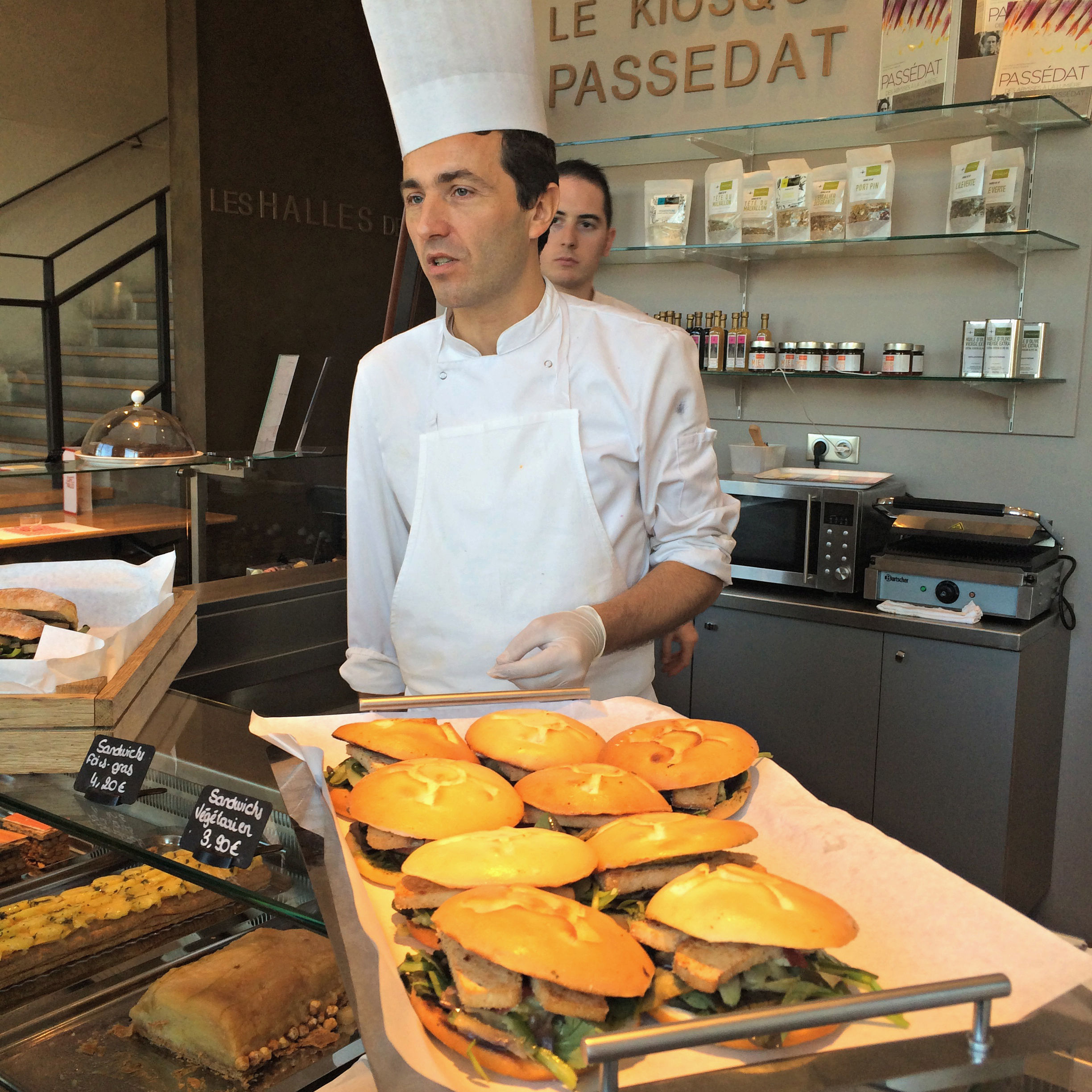 Serious tofu sandwich time.[/caption]
Serious tofu sandwich time.[/caption]
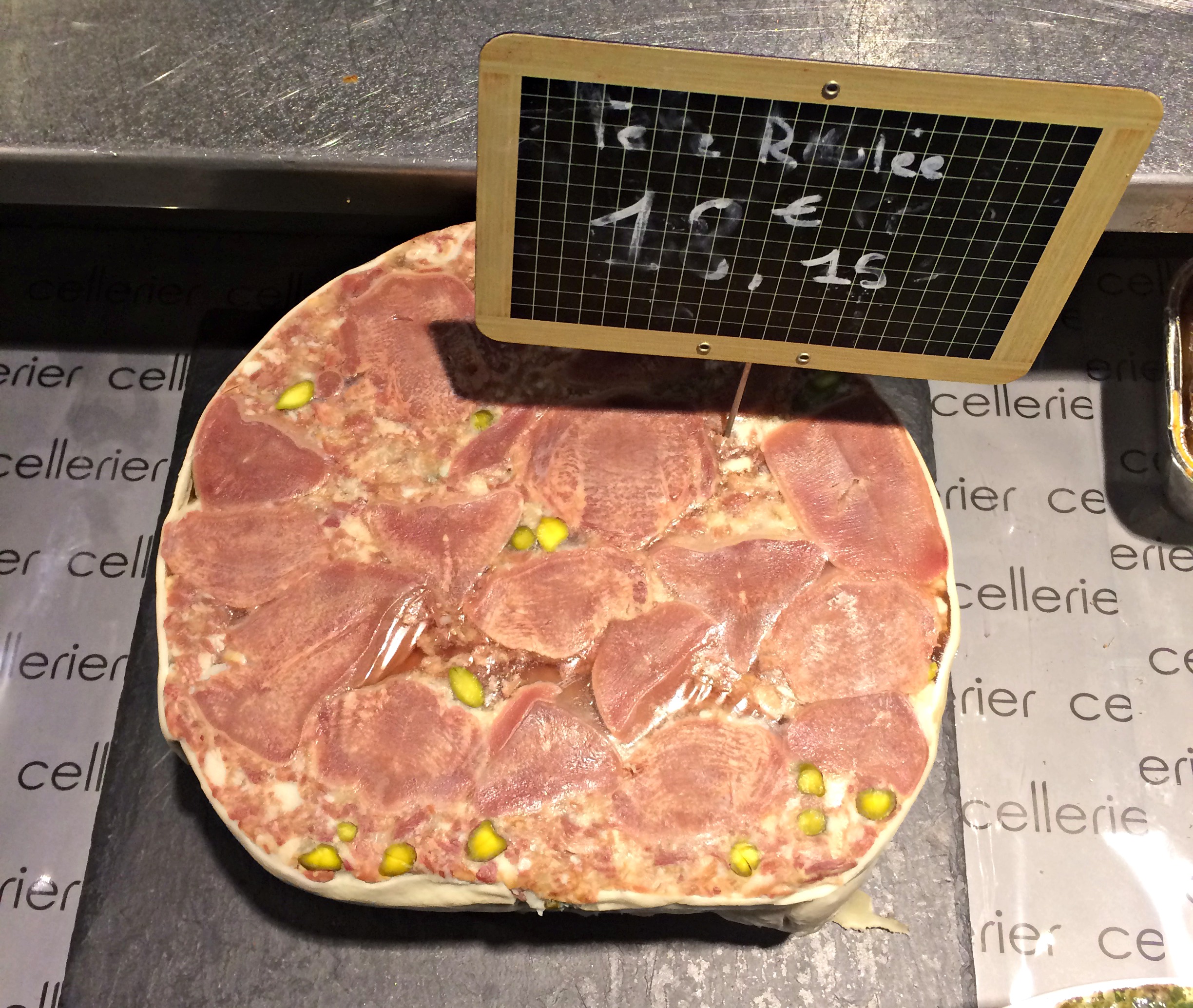 An entire stand at the hall is dedicated to the pates and terrines of Lyon, a widely respected food city located 200 miles due north.[/caption]
An entire stand at the hall is dedicated to the pates and terrines of Lyon, a widely respected food city located 200 miles due north.[/caption]
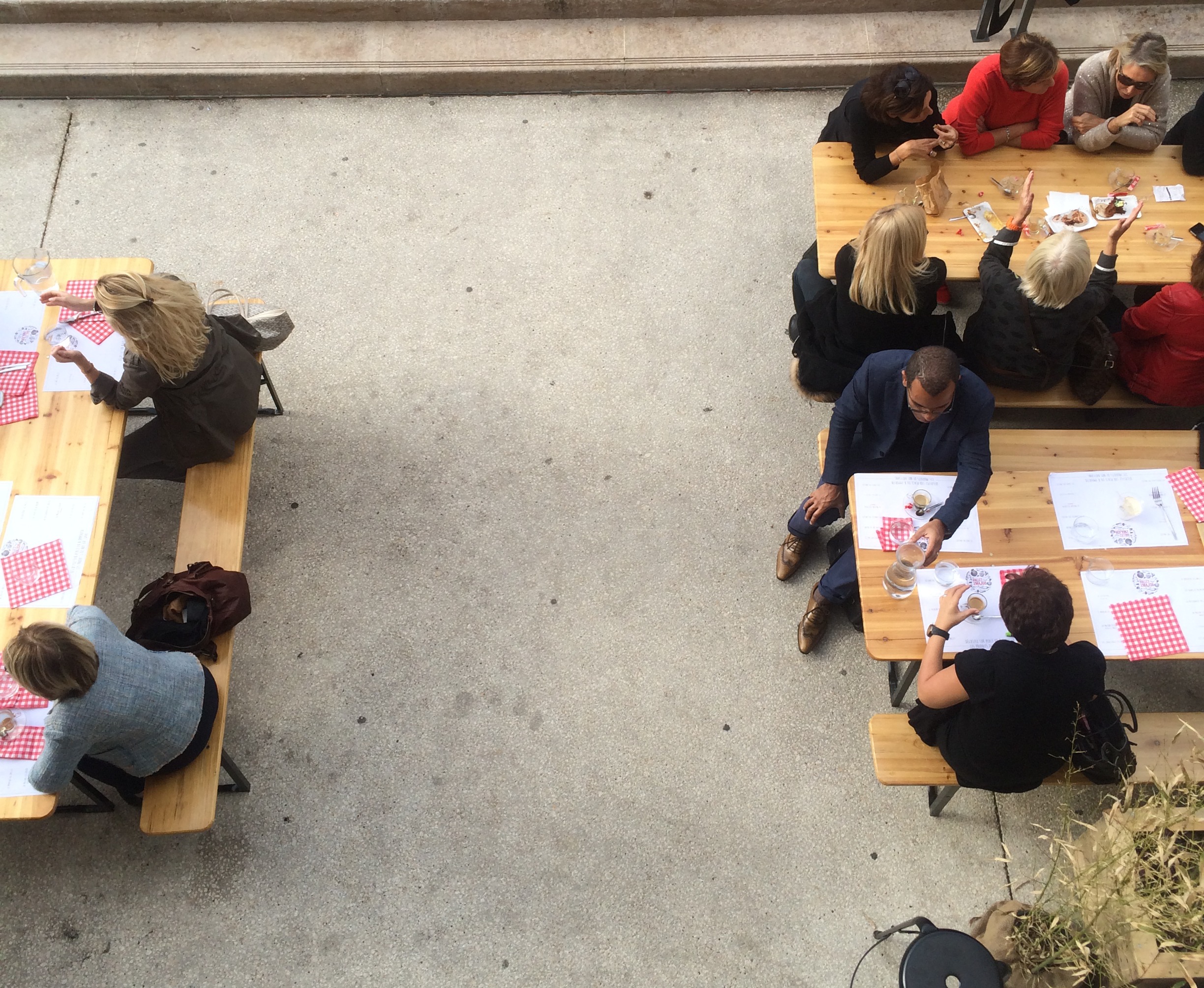 Diners seated outside, enjoying a beautiful afternoon in Marseille.[/caption]
Diners seated outside, enjoying a beautiful afternoon in Marseille.[/caption]
 A view from the MuCEM, with the Villa Mediterranée in the foreground and Les Voûtes de la Major in the distance. [/caption]
A view from the MuCEM, with the Villa Mediterranée in the foreground and Les Voûtes de la Major in the distance. [/caption]
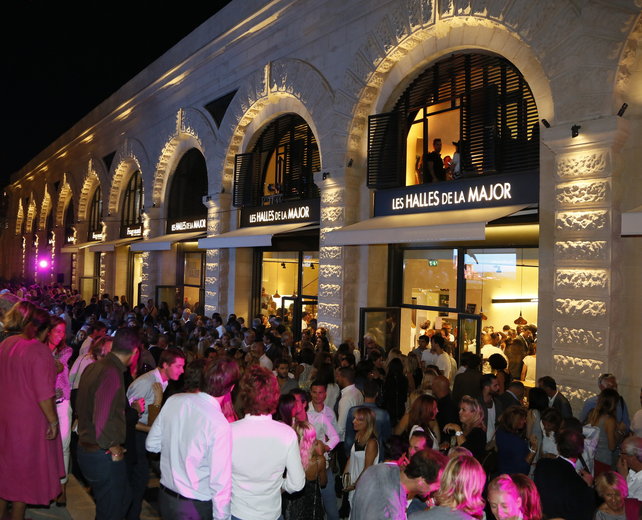 An evening event at Les Halles de la Major.[/caption]
An evening event at Les Halles de la Major.[/caption]

- Le Café des Halles: a brasserie run by chef Julien Bottela.
- Les Glaciers Marseillais: Jérôme Cellier, artisan ice cream maker and pastry chef with 20 years experience.
- La Poissonnerie des Halles de la Major: Patrick Torres and Éric Castro sells fresh fish from the Atlantic, rivers and the Mediterranean.
- Les Coquillages des Halles: Recognised for the quality of its products and service for over 20 years, Nico Coquillages has set up a fine shellfish counter.
- La Maison Cellerier Fromagerie: This producer and curator of fine cheeses, already a celebrated figure at Les Halles Bocuse de Lyon.
- Le Primeur des Halles: A regional specialist in direct-to-customer fruit and vegetable sales, Le Primeur des Halles maintains close ties with local producers and is a guarantee of freshness.
- La Casertane: This Italian fine foods store, with a stand-along store in Marseille, offers a wide range of fresh Italian foods.
- La Maison Cellerier Spécialités Lyonnaises: A provider to many starred restaurants, La Maison Cellerier is dedicated to specialities from Lyon and traditional cold cuts and cured meats.
- Les Tapas des Halles: An undying tapas lover, Julien Botella invited Marseille-based self-taught chef Thomas Hallier to bring some of his tapas bar to Café des Halles.
- Le Kiosque – Pastry Shop: 3-star and highly-lauded chef Gérald Passédat and his head pastry chef run this pastry shop.
This post has been brought to you by our friends at the France Tourism Development Agency:


